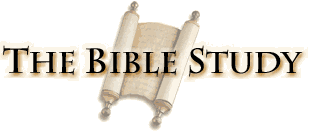
The Four Living Creatures
And before the throne [there was] a sea of glass like unto crystal: and in the midst of the throne, and round about the throne, [were] four beasts full of eyes before and behind. And the first beast [was] like a lion, and the second beast like a calf, and the third beast had a face as a man, and the fourth beast [was] like a flying eagle. And the four beasts had each of them six wings about [him]; and [they were] full of eyes within: and they rest not day and night, saying, Holy, holy, holy, Lord God Almighty, which was, and is, and is to come. (Rev. 4:6-8)
What do these four living creatures symbolize?
The four living creatures stand for everything that is noblest, strongest, wisest, and swiftest in nature. Each of them has the pre-eminence in his own particular sphere and world. The lion is supreme among beasts; the ox is supreme among cattle; the eagle is supreme among birds; and man is supreme among all creatures. The lion is the king of beasts, the noblest of them all. The labouring ox is the strongest of beasts. The eagle is the swiftest of all birds. And man is the wisest in all creation.
So, then, the beasts represent all the greatness and the strength and the beauty of nature. Here we see nature praising God. In the verses which are to follow we see the twenty-four elders praising God; and when we put the two pictures together we get the complete picture of both nature and man engaged in constant praise and adoration of God. The ceaseless activity of nature under the hand of God is a ceaseless tribute of praise.
The idea of nature praising God is one which occurs in the Old Testament more than once.
"The heavens declare the glory of God; and the firmament showeth His handiwork. Day unto day uttereth speech and night unto night showeth knowledge" (Psalm 19:1,2).
"Bless the Lord all His works in all places of His dominion" (Psalm 103.22).
The whole of Psalm 148 is a magnificent summons to the whole of nature to join in praising God.
Night and day the living creatures never rested from their doxology of praise:
"Holy, holy, holy is the Lord, the Almighty, Who was, and Who is, and Who is to come."
Here there is set out the sleepless praise of nature. As it has been put: "Man rests on the Sabbath, and in sleep, and in the end in death, but the course of nature is unbroken and unbroken in praise."
By William Barclay